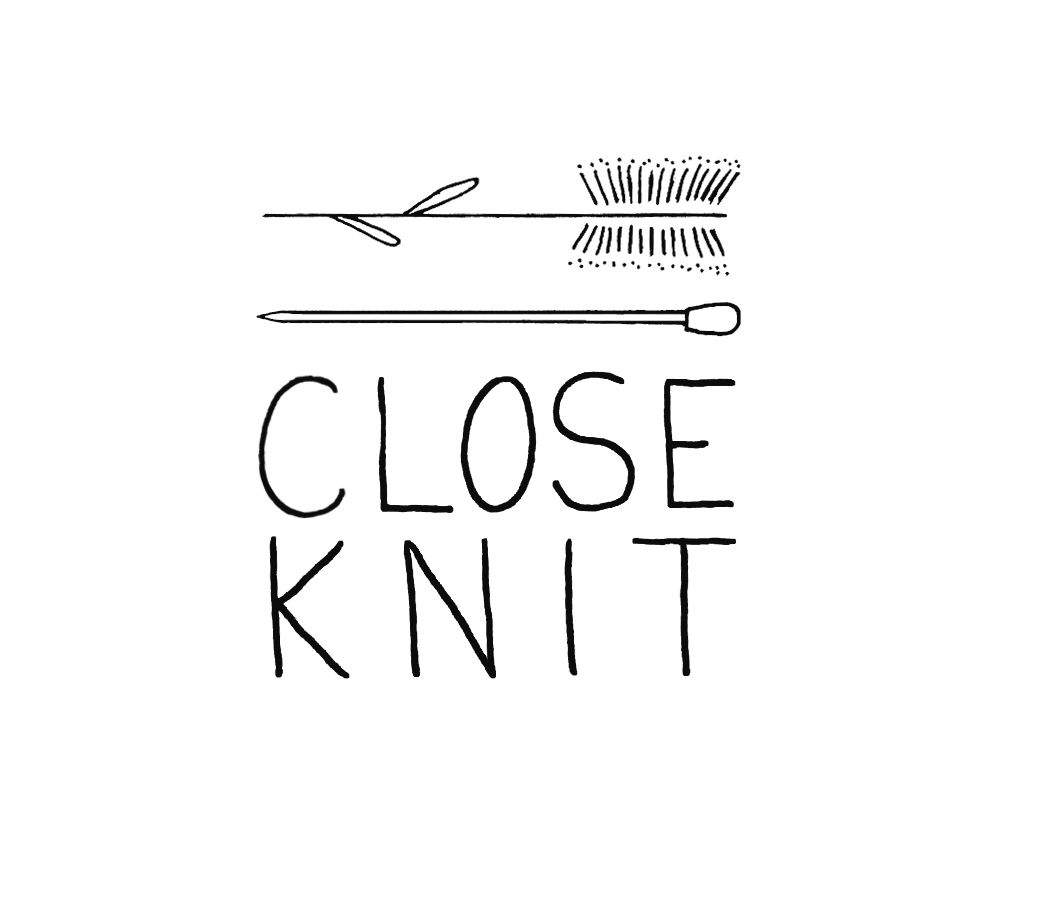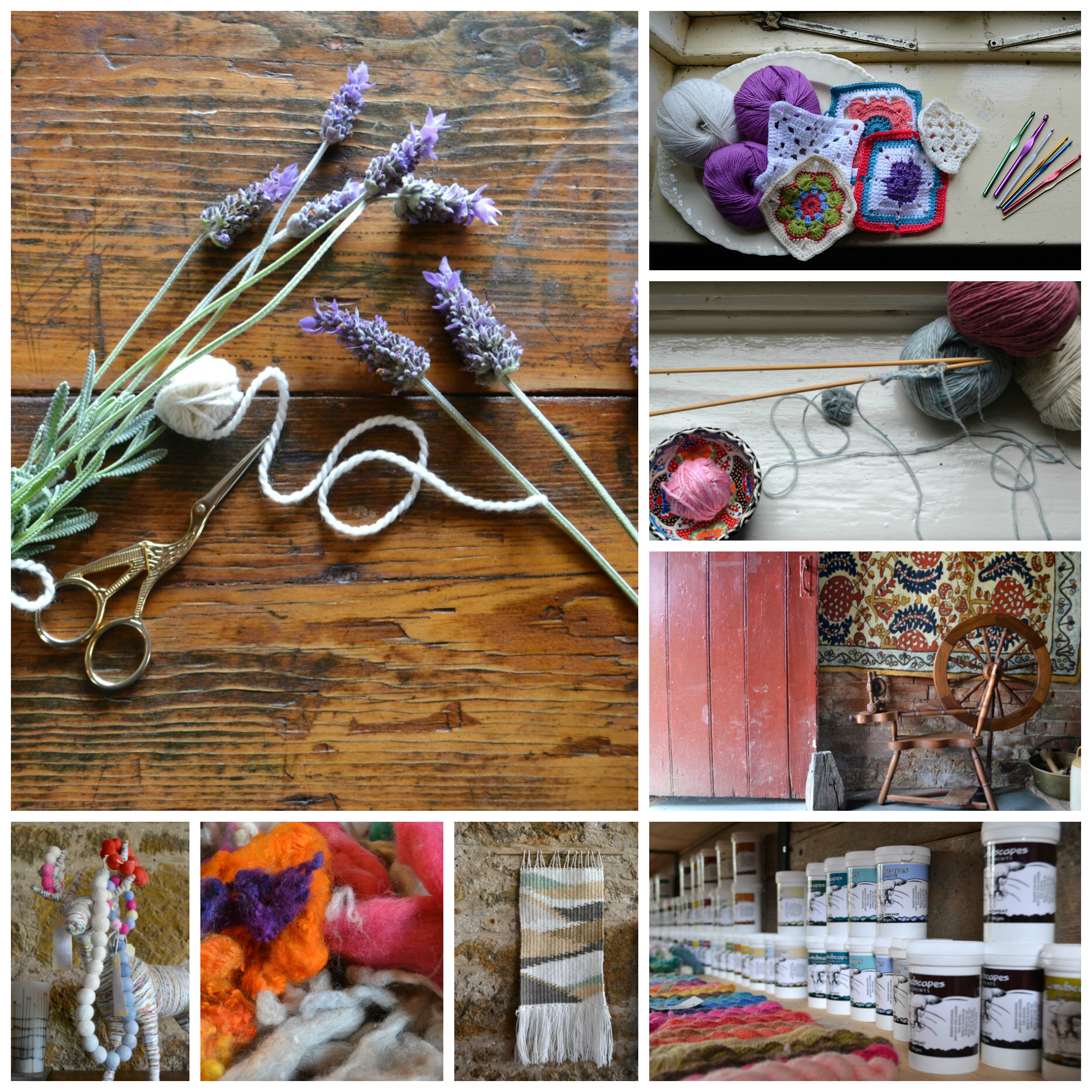EPISODE NINETEEN :: Julie of Little Loom - Interpreting Fibre In a Free Form Way & Navigating the Complexities of Making and Selling Work
The Close Knit podcast showcases artists, designers, and makers from all over the world who work with fibre in its many forms. Knitters, spinners, sewers, textile artists - all will be celebrated on the Close Knit podcast.
A very special thank you to this week's episode sponsor, Wool Gathering, a four day wool crafts based retreat being held in Victoria in May 2017. During the Gathering you will participate in three wool based classes, with options in knitting, crochet, spinning, tapestry weaving, Saori weaving, needle felting, wool embroidery and yarn dyeing.
Wool Gathering teachers have many, many years of experience between them, and include Sue Grandfield (Riotous Assembly); Clare Devine (Knit Share Love), Briony Singleton (Gradient Yarns Australia & Briony Knits), Prue Simmons (Dyeing to Weave) to name just a few. Classes have been designed to suit all levels of experience so you have the option to take all your classes within the same well loved craft or you can try something completely new as beginners are well respected at Wool Gathering!
Participants of Wool Gathering will get to enjoy the incredible Tarndie Farm. Tom Dennis, the current (6th generation) owner, will entertain you with his History of Tarndie tour where you will learn all about the pioneers who settled the property and then the Fleece to Yarn tour will see you walk with the sheep from the paddocks to the shearing shed where you will learn all about Polwarth fleece.
Tickets are currently on sale and you can find all the nitty gritty details at www.woolgathering.com.au and follow along on instagram - woolgatheringaustralia and facebook - wool gatheringaustralia.
Julie is a free form fibre artist, utilizing weaving and macrame techniques to create her unique wall hangings. She and I discuss a mutual love affair with all things linen, and how she made a transition from using whatever materials she found to thinking more consciously about where her materials came from and how they were made. We talk about navigating the complex space of pricing and selling handmade work, and how she keeps up the motivation to continue making work regularly. Julie tells me about her love of teaching free form workshops as a form of art therapy for herself and her students, and how she has used this style of making to lighten her own state of being when going through some tough times.
Julie teaches workshops in free form - intuitively creating using beauitful materials and a few simple knotting and weaving techniques. She recounts how people often struggle with this at first and find it confronting, the fact that they're not being told what to make, but once they drop in, and let go, it's such a special feeling. Julie tells me she gets goosebumps just talking about it.
Julie first picked up weaving when she was struggling with post natal depression. It was a meditative escape for her, and somewhere she found some peace. At first, she reckons she tried too hard, tried to be what she thought a weaver should be, and that just wasn't working for her. Then she bought some handspun yarn and decided to not try so hard and to let go. It was at that point that she created the first piece she really loved, and that was a really pivotal moment for her. She started listening to Woolful, and started learning about fibres and then moved exclusively to high quality, ethically-source, and rare and vintage fibres.
Julie's biggest bit of advice:
"...don' be afraid to try. There is no right way, there is no wrong way, just try. If you have an idea for something, don't not do it because you think it won't be well received, or because you think it's not the right way to do something, just try. That's how we learn, evolve, grow. And the fibre community is so encouraging and supportive"
People/ Things we mentioned in the podcast:
- string harvest: they sell an australian grown and milled cotton that julie loves
- Dana Juszczyk @brosha_me - sculptural, textural woven pieces
- Plump and Co - a friend of the Close Knit Podcast, episode 14 guest :)
- Pip Taylor - @philippaataylor - combines porcelain and woven objects
- Kelaoke - makes wearable art from fiber and ceramics
Find Julie: instagram
Want more?
- Subscribe: Itunes or Pocket Casts
Like what you're hearing?
Awesome! I'm glad you've found your way to this podcast. Please feel free to subscribe, leave a review on iTunes (this makes all the difference to reaching more people!) and share with your loved ones. Thanks for tuning in.
Until next time!
xx
Ani
























